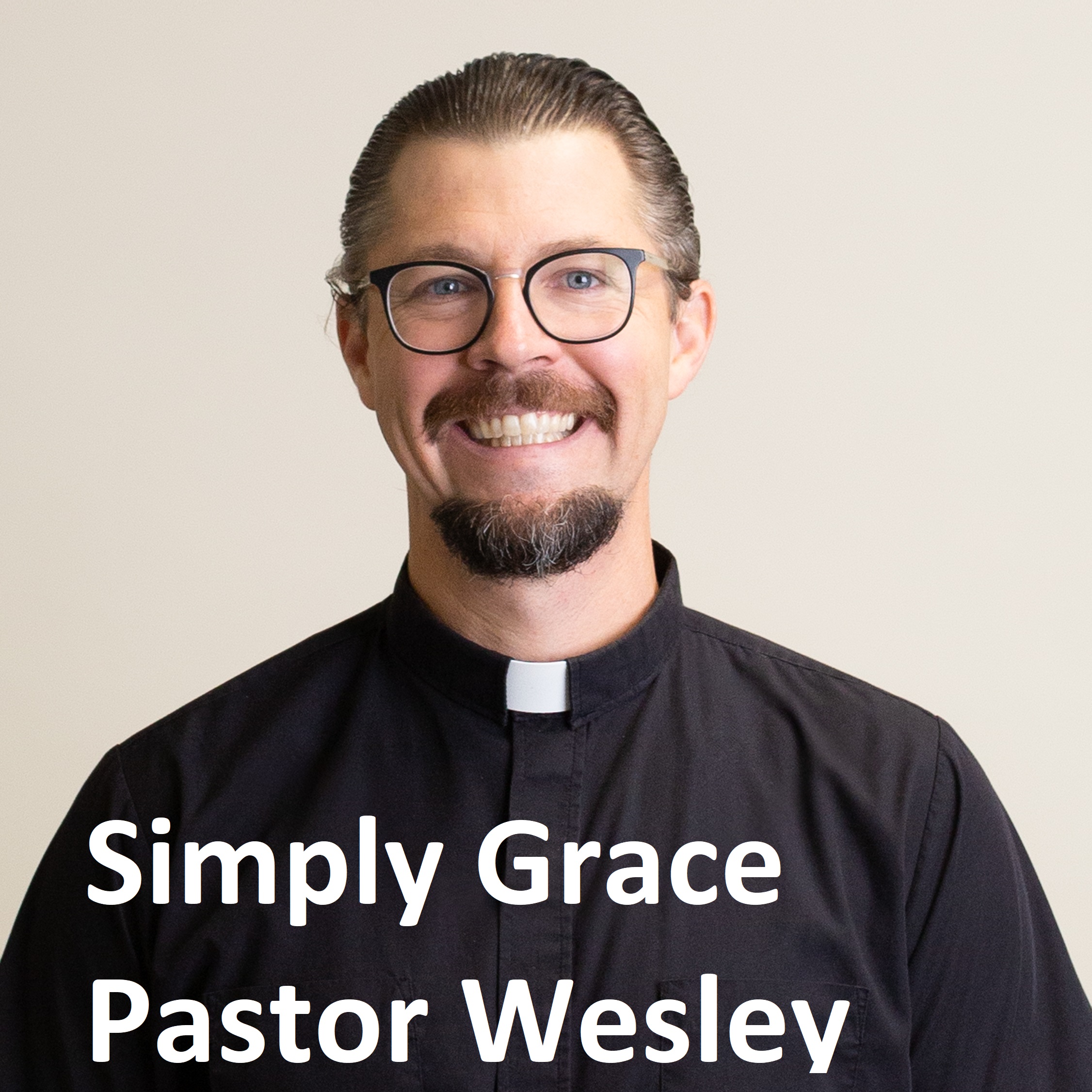Sermon 2022.02.06
Rev. Wesley Menke
5th Sun After Epiphany
Why do we work? Well, one reason is to make money to buy the things that are needed to live and survive. But that’s not the only reason. We also work because it can be therapeutic. Work can be a welcome distraction from the worries of life. When you work you can get into “the zone,” or feel a sense of flow where time slips by quickly, and there can be an immense sense of satisfaction having seen the results of your work. What if God’s intention for work in your life is not to burden you, but to give you something to do that engages your interest and passion? What if work isn’t something you have to do, but something you get to do? As Lutheran Christians you believe that you are saved by Grace through Faith, and not by Works. Your eternal life, salvation, and forgiveness are all gifts from God that you have not and cannot earn. If you believe this, that you are saved by Grace, then you know that you don’t have to work for your salvation. Your salvation doesn’t depend on you, it depends on God.
Consider Simon. Jesus was standing beside the lake of Gennesaret, also known as the Sea of Galilee, teaching the people. The crowd was eager to learn and be close to Jesus, and unfortunately as they crowded close to Jesus he was getting pushed into the water. So he asked Peter to take him in his boat a little ways into the water. This made a buffer zone. Jesus sat down in the boat and taught the people. When Jesus was done speaking, but he wasn’t done teaching, he asked Simon to take him out to the deep water. Simon questions this a little bit. He tells Jesus that they have already been working all night, and have caught no fish. Yet Peter obeys Jesus, and goes out. Why? Well this is not the first time that they have met. Recently Jesus had healed Simon’s mother in law. So what Jesus lacked in fishing credibility, he made up for in some kind of miraculous power and teaching authority. Do you know what happens next? Simon’s nets catch so many fish that the nets would have broken, if James and John weren’t ready to help out. Evenso there were so many fish that two boats almost capsized due to the weight of the catch.
What’s the point of the story? What is the lesson that Jesus was trying to get across to the crowds, to Simon, his colleagues, and to us? Well it is nothing less than the gospel itself. You are saved by grace through faith, and not by works. Simon had made the classic mortal mistake of putting faith in himself. He had already worked all night and caught no fish. He hesitated to fish anymore because he had already done so much work. In his mind he believed that if you work hard, and put your mind to it, you could be a successful fisherman. If you worked hard enough perhaps you could even lift yourself up by the bootstraps and get yourself and your family out of generations of grinding poverty and subsistence living. We know from history that the recent expansion of the Roman Empire opened up new avenues of trade for Galileeans so that an industrious fisherman could tap into the growing market of fish connoisseurs not just in Capernaum, but the whole Roman Empire. A new city was being built for this express purpose: Tiberius, named after Caesar, on the Lake of Gennesaret also known as the Sea of Galilee. The sea of Galilee wasn’t a sea at all. It was this same freshwater lake. It was an exciting and heady time for the old fishing families near the Sea of Galilee like Simon. This was their chance to be something bigger. And yet, like many ambitious dreams, things weren’t materializing like many people had hoped. There were scads of new fishing operations on the lake, and that meant more competition. The preponderance of fishers also meant the price of fish stayed low. You put all of this together and you can empathize with Peter for how discouraging and disheartening the whole situation was.
So Simon and Jesus go out over the deep waters and cast the nets and get the biggest haul imaginable, almost too big of a haul. A dangerous haul. The moral of the story is this: you need more than hard work to catch a lot of fish. Hard work isn’t enough. You need there to be a lot of fish! That’s called grace. You may be the greatest fisher in the world, but there has to be fish! Without God’s grace you can’t do anything, you’re, “dead in the water.” God made the fish, so even fishing is a result of God’s grace.
That’s the thing about work. Do you have to work? Well, yes, you have to work. It is an essential part of being a human. Breathing is work. But if God doesn’t give us air to breathe, then even the work of breath is pointless. You can’t just stop working, but your attitude about work must be humble. We are called to work humbly understanding that much of our work is woefully inadequate and totally dependent on God’s grace.
Did you happen to notice what Peter and the others were doing while Jesus was teaching? They were washing their nets! It sounds kind of funny, to wash a fishing net. I mean, aren’t they pretty well washed having been drugged through the water all day? But if you think about it, it makes sense. The nets get dirty picking up stuff that isn’t fish like plant material and probably litter. A good and smart fisher remembers to take time at the end of the day to clean the nets before they are put away. Cleaning up after yourself when you work is important because work is messy. Think about that for a moment, we can’t even work or be creative without getting messy. That right there should keep us humble about work.
When I was in high school our church did a fundraiser where we auctioned off jobs. My friend and I offered to wash windows for people’s houses. Guess who had the highest bid for this job? The pastor! So my friend and I went to the Pastor’s house to wash his windows. When we were near completing the job we began to smell delicious food. The pastor’s wife, Jan, came out and said that when we were all done we could eat. Sweet! You know that two teenage boys like to eat. So there we were, with Pastor Bob watching us as we finished the last window. After the last window was washed my friend dropped the rags, the squeegee, and the bucket and headed in to eat. I called after him that the job wasn’t done. We still had to clean up the tools, wash out the buckets, and put everything away. My friend rolled his eyes at me and kind of crumpled on the spot. The pastor laughed out loud with a kind of guffaw as he was known to do, looked at me, and said I think I know where you learned that from! The pastor had gotten to know my father pretty well while my father built his house. The job’s not done until you clean up and put away all your tools, write your reports, fill out your timesheet, do your paperwork, etc. Why? Cleaning up after ourselves is an act of humility to remind us that even our best work isn’t perfect, but temporal, and even messy. Windows don’t become sparkly clean just because we are so good at cleaning them, but because God gave us eyes to see. Houses are not built just by our work, but because God makes trees to grow tall and strong, and minerals to be formed deep inside the earth, and stars to shine blanketing us with energy and life. We don’t make these things happen. We are like surfers who ride the waves of God’s grace. And after the work is done, after the surfing of God’s mercy we are to take time to thank God for God’s blessings and mercies and clean our surfboards, wash our nets, ring out our rags, and file our paperwork. Remembering how fortunate we are to even exist and have privilege to play in God’s grace and mercy.
Simon is so very Simon isn’t he? He is a very earthy example that hopefully you can relate to. He gets it so right, and he gets it so wrong. He is humble enough to know to wash his nets, but he struggles with faith to accept that his well being is a merciful gift from God, grace, and not his own doing. He gets down on his knees and trembles before Jesus and says that he is not worthy. He is a sinner. He really has no right for any of those fish. Here is where things get interesting. Jesus calls Simon to a new venture, and to a different kind of work. Jesus says, “Now you will fish for people.” We need to be careful how we read these words of Jesus. It is a misreading to think that Jesus is somehow giving Simon a break. He’s not saying, “Don’t worry about it Simon, we are going to move you laterally into a position more comfortable for you!” No. Just the opposite. It’s more like Jesus is saying, “While you are in a kind of seated position, let me break this to you gently. Don’t worry, don’t freak out, but from now on you are going to fish for people!” But why? Because nobody is an island to themselves. It’s not enough to go through life working to take care of yourself and just your immediate family. You’re surviving and your success is not possible without the partnership and cooperation of others. When Simon was in distress and signaled for help, Jesus saw in him that moment to work with other people. Jesus wanted to cultivate that skill in Peter to grow into fruition. In the church we call this Evangelism. Just like it isn’t enough to quit working when we have results without humbly cleaning up after ourselves, it is also not a complete work unless we intentionally invite people to learn with us and to grow in number and organization.
You can imagine how these must have been strange words for Simon to hear. There’s a reason why certain people are attracted to fishing. You get to be alone, on a boat, without lots of people. Let’s be honest, it can be very difficult to work with people. People can be rude and nasty to one another. Just think how moments earlier the crowd was pushing Jesus into the lake! Imagine how Simon and some of the other fishermen felt with a great new influx of people to Tiberius and the economic development of the lake; to the fishing grounds? They probably felt threatened. It’s not like the lake was getting bigger with more fish. More people fishing meant less fish to go around. Now Jesus is asking Peter to do the one thing, probably the last thing he would like to do, which is to spend more time around people. Simon was rough around the edges and not known to be a people person. Maybe some even accused him of being anti-social, but that would be unfair.
When I was growing up and in high school kids were called anti-social if they were shy and didn’t like going along with what everyone else was doing. I used to think that’s what it meant to be anti-social, I thought it meant someone was reserved or shy. But it turns out, that is a misuse of the word. Anti-social in it’s more accurate usage means to lack conscience, to manipulate people, to deceive, to con, to be smooth with words, but to exploit others for your individualistic interests. No, Simon wasn’t anti-social, far from it. If anything he was leary and weary of anti-social persons who blend in with the crowd but have no conscience. So Jesus’ invitation to Peter is to again go out with him to the deep waters, not of the lake, but of the human soul. What Simon lacked in elegance and smoothness, he made up for in conscience and heart. The call to discipleship that Jesus makes to Simon and also to each one of you hearing these words, is to not pull back from the struggles of the day. If we think that we are always in competition with others then there will never be enough fish, or enough money, or enough houses, or enough doctors. But if we have faith in God’s grace, then we will believe that God will provide enough, and more than enough! You are called to the deep waters of building and strengthening no less than the very fabric or net of civilization. If you who have a conscience and a moral grounding of right and wrong do not get involved in your neighborhood association, your city council, your workplace organizations, then who will? We have got to evangelize! We have got to make disciples! It’s not an option. Our very survival depends on it, and it always will. Security and salvation will never be achieved by working just for ourselves and our immediate family, but by cooperating and negotiating with one another. We must go out into the deep waters with Jesus to fish for people, to evangelize.
If you didn’t hear, a week and half ago I was involved in an accident involving an SUV and a pedestrian. I was the pedestrian. The food that has been brought to us, and the messages of care and concern, and the prayers have meant so much, and I thank you from the bottom of my heart. This is fishing for people. This is caring for one another. We as a family haven’t eaten this well since we moved here three years ago, when there was another meal train that welcomed us to the area. I wonder if I should get hit by a vehicle more often? No. I won’t do that. I will try not to do that. But it is proof that when we invest in one another, God will shower us with grace and abundance in our time of need. I hope that I, and we, can show this same kind of care to all of our members in their times of need.
I know that many of you have been hurt by people. I know that many of you, because of your work, or families, or just by the vagaries of life may have been tempted to sour on the goodness of people. You may have more than a healthy skepticism about people. Be that is it may. Nobody is asking you to have faith in people. Jesus didn’t ask Simon to have faith in the goodness of people. No. Have faith in God, God’s grace, and God’s ability to fill lakes with fish, forests with trees, deserts with rain, and to fill all the human hearts and minds with God’s word, grace, salvation, and righteousness. Amen.

This is the story of Elijah’s passion Gilgal is where Elijah’s passion with Elisha begins. Elijah told Elisha that it was not necessary for...

Sometimes you don’t see God It is traditional to begin the season of Advent and the new year at the end of time. Mark...

Have you ever felt abandoned by God? Telecaster The Problem: Waiting Matthew 25:1-13 The groom was late, very late. He didn’t show up for...